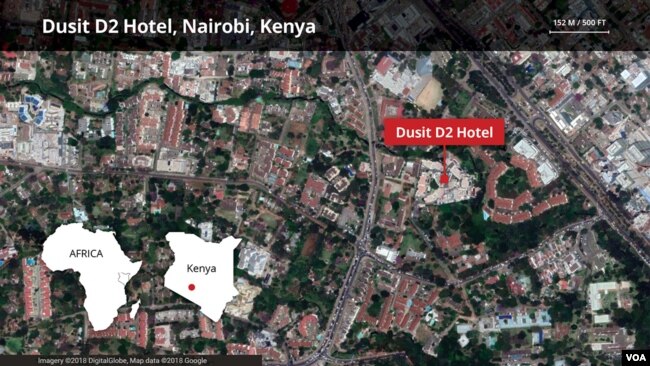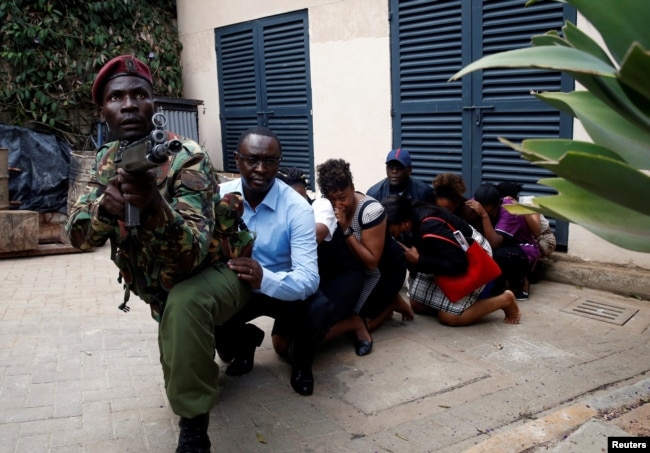Kenya Reopens DusitD2 Hotel, One Week after Deadly Attack
Kenyan authorities have reopened the DusitD2 hotel and office complex to the people who were working there when it came under attack last week.
It’s the first time civilians have been allowed to access the area since the attack, which claimed the lives of 21 people.
Kenyan security agencies continue to investigate how the incident was planned and those who might have helped the five assailants in the terror operation.
Investigators widened their search to the northeastern town of of Isiolo, where arrests were made.
So far, authorities have taken at least 11 people into custody and interrogated dozens of others.
Government spokesman Eric Kiraithe said authorities will get to the bottom of the attack.
“The security situation is calm, and all the security services are alert. Investigations involving Dusit 2 are going on; we have made a number of arrests so far…we are satisfied that the investigations are going on well and those who were involved in this justice will be done,” he said.
Authorities have brought before the court six suspects whom they believe to be behind the attack.
Islamist militant group al-Shabab has claimed responsibility.
Al-Shabab has vowed to fight Kenya so long as its troops are stationed in Somalia to support that country’s government in establishing peace and stability.
Some experts say the group will continue with its threats and attacks even if Kenya withdraws its troops from Somalia.
Kenyan security agencies have been praised for how they handled the latest terror attack, by quickly evacuating people and ending the siege in under 20 hours.
But analysts believe the country needs to rethink its strategies to stop al-Shabab from recruiting among Kenyan youth.
Anneli Botha is a terrorism researcher. “Al-Shabab [is] being successful especially in areas where you have vulnerable communities, people feeling marginalized due to a number of reasons; it can be religious, it can be ethnic. Some of the areas I think they are abused before, but also frustration toward the Kenyan government has also been proving quite successful in the hands of al-Shabab,” said Botha.
“I think what Kenya needs to do is to re-look at its ideological pushback countering violent extremism strategies,” said Mustafa Ali, a Horn of Africa security expert based in Nairobi. “While the security has done very well to address violent extremism and terrorism, the area of community mobilization awareness is something that has lagged behind, and that is something that the country needs to look at it carefully.”
Kenyan media report one of the assailants slipped through the border to carry out an attack. Some security officers have been accused of corruption, with authorities saying this has led to the smuggling of firearms and al-Shabab fighters.
VOA









